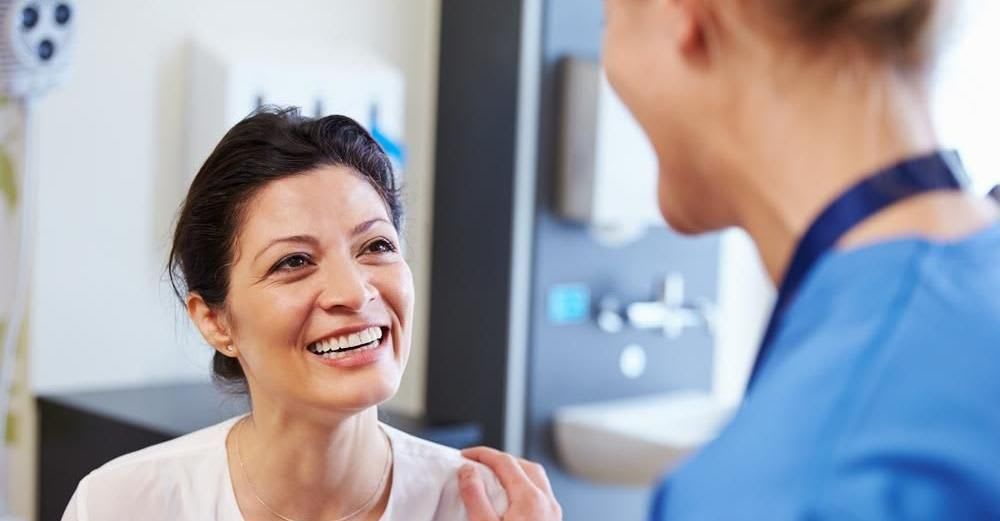Why Doctors Should Understand Politics and Economics
Physicians assess patients, diagnose diseases and conditions, and offer a broad range of treatments including medication, therapy and procedures. In short, they are authorities in the practice of medicine. So what does any of this have to do with politics and economics? A lot, as it turns out. Let’s take a closer look at four reasons why understanding politics and economics is important for doctors.
- Student Tips

Physicians assess patients, diagnose diseases and conditions, and offer a broad range of treatments including medication,therapy and procedures. In short, they are authorities in the practice of medicine. So what does any of this have to do with politics and economics? A lot, as it turns out. Let’s take a closer look at four reasons why understanding politics and economics is important for doctors.

1. Context is a valuable part of physician decision-making.
The practice of medicine doesn’t exist in a vacuum. Rather, it’s directly affected by political, economic and social impacts. In fact, according to a journal article published in PLOS Medicine, these factors can have an “equal, and sometimes greater, influence on the health of populations” than medical policies alone.
Everything from international trade agreements which determine the availability of key drugs in a particular region of the world to pharmaceutical companies which cater to the wealthy and forsake the poor can and does influence how people around the world gain access to acute, chronic and preventative medical care.
Because of this, the article argues, it’s important for doctors to look beyond their chemistry textbooks and anatomy labs and at the more encompassing issue of “health policy.”

2. Finances are a very real factor in health care.
Whether you like it or not, the reality is that some patients can afford to pay more for health care than others. Acknowledging and understanding this disparity is essential to making “big picture” decisions.
For example, what may be the best medical option for a particular patient may not actually be feasible due to cost or time constraints. Rather than prescribing an unrealistic, unattainable treatment, a doctor can adjust treatment to meet the patient’s unique needs and circumstances.
However, understanding the role finances play in the modern health system isn’t just limited to its impact on patient care. Financial literacy is also essential for doctors considering setting up their own practices. And while the typical medical school curriculum may gloss over the intricacies of running a practice, financial knowledge can mean the difference between success and failure when it comes to operating a business.

3. Political bias can directly impact how doctors treat patients.
According to recent research from Yale University published in the Proceedings of the National Academy of Sciences of the United States of America, how doctors treat patients may be directly influenced by their own political views.
For example, Democrat doctors were more likely to encourage patients not to have firearms in their homes, while Republican doctors were more likely to inquire whether firearms in the home were being safely stored. These inconsistencies were seen across everything from drug use to abortion.
According to authors Eitan D. Hersh and Matthew N. Goldenberg, “To be clear, we cannot say with any certainty what the root cause of partisan differences in treatment is. However, regardless of the underlying mechanism that affects physician judgment, the evidence suggests a clear effect from the patient’s perspective.”
In other words, the study’s findings indicate that physician advice may not always originate from clinical knowledge but from political ideology, instead. The more physicians -- and patients! -- are aware of this issue, the more aptly they can maneuver to keep medical training at the forefront of care.

4. The landscape of modern medicine is ever-changing.
As evidenced by recent election results in the US, the direction in which the wind blows is constantly changing. While healthcare industry experts are still attempting to understand what a Donald Trump presidency means for the country’s healthcare system, most agree that big changes are ahead, potentially pertaining to everything from how citizens obtain healthcare coverage to rollbacks in women’s reproductive rights.
And while we may not know the specifics of what healthcare will look like moving forward (in the US or any other country, for that matter) doctors who understand and follow the issues will be best prepared to navigate changes as the occur -- both for the benefit of their patients as well as for their own careers.
The takeaway for doctors and medical students? While you don’t need a PhD in economics or politics to be a doctor, acquiring a foundation in these subjects -- and committing to keep up on that knowledge -- can not only help you make more informed and relevant decisions, it can also help you be a better doctor.

Joanna Hughes
Author
Joanna worked in higher education administration for many years at a leading research institution before becoming a full-time freelance writer. She lives in the beautiful White Mountains region of New Hampshire with her family.
Read related articles

What You Should Know If You Want To Practice Medicine Abroad

Five Countries to Choose for Nursing Degrees
